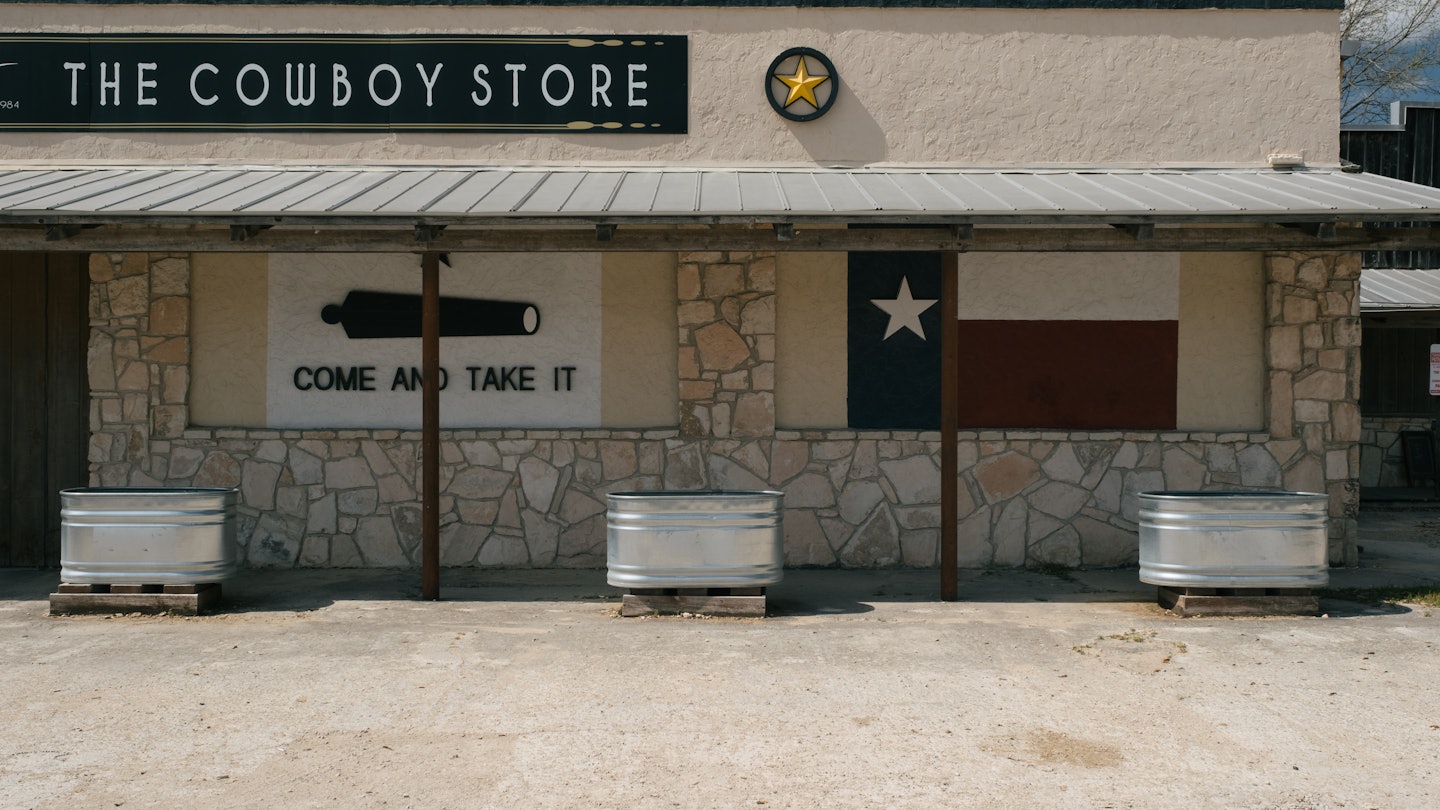
The Cowboy Store in Banderas, Texas. Harmon Li for Lonely Planet
Whether it’s cowboy hats and bootcut jeans showing up everywhere from runways to NYC streets or Stagecoach crowds rivaling Coachella’s, one thing’s clear: cowboy core isn’t over. It’s evolving. Growing, even. And the best way to experience it isn’t by scrolling TikTok or line dancing at a country bar. To really immerse yourself in the movement, spend time in small towns across the American West. Places where rodeo is a way of life and horses are still a primary mode of transportation.
Sure, there are big names with big reputations – Fort Worth’s Stockyards, Reno’s legendary rodeo, the neon-lit honky-tonks of Las Vegas and Nashville, Wyoming as a whole (its nickname is the Cowboy State, after all). But this guide is all about the cowboy towns you may not yet know. Some host fiercely competitive rodeos. Others have infamous outlaw saloons, historic dude ranches and main streets that look frozen in the 1880s. What they all have in common: a hearty dose of good ol’ fashioned cowboy grit.
Whatever your vision of the ideal cowboy core experience, channel your inner John Wayne or Annie Oakley in one of these frontier towns.


1. Bandera, Texas
Best for real-deal cowboy core
Bandera has proudly embraced the title of “Cowboy Capital of the World” since the late 1800s. A monument honoring the town’s many rodeo champions sits outside the courthouse, and it’s not unusual to see horses "parked" outside stores.
Western shops line Main Street, like The Cowboy Store and Bandera General Store, which serves root beer floats from its old-fashioned soda counter. Around the corner, Arkey Blue’s Silver Dollar claims it's the oldest continuously operated honky-tonk in Texas. Have dinner at OST, a BYOB restaurant with a John Wayne Room, and stay at a working dude ranch like Mayan Ranch, where chuckwagon breakfasts and trail rides set the tone.
Planning tip: Visit on a Wednesday for 11th Street Cowboy Bar’s legendary steak night. BYO meat and grill it out back with locals.
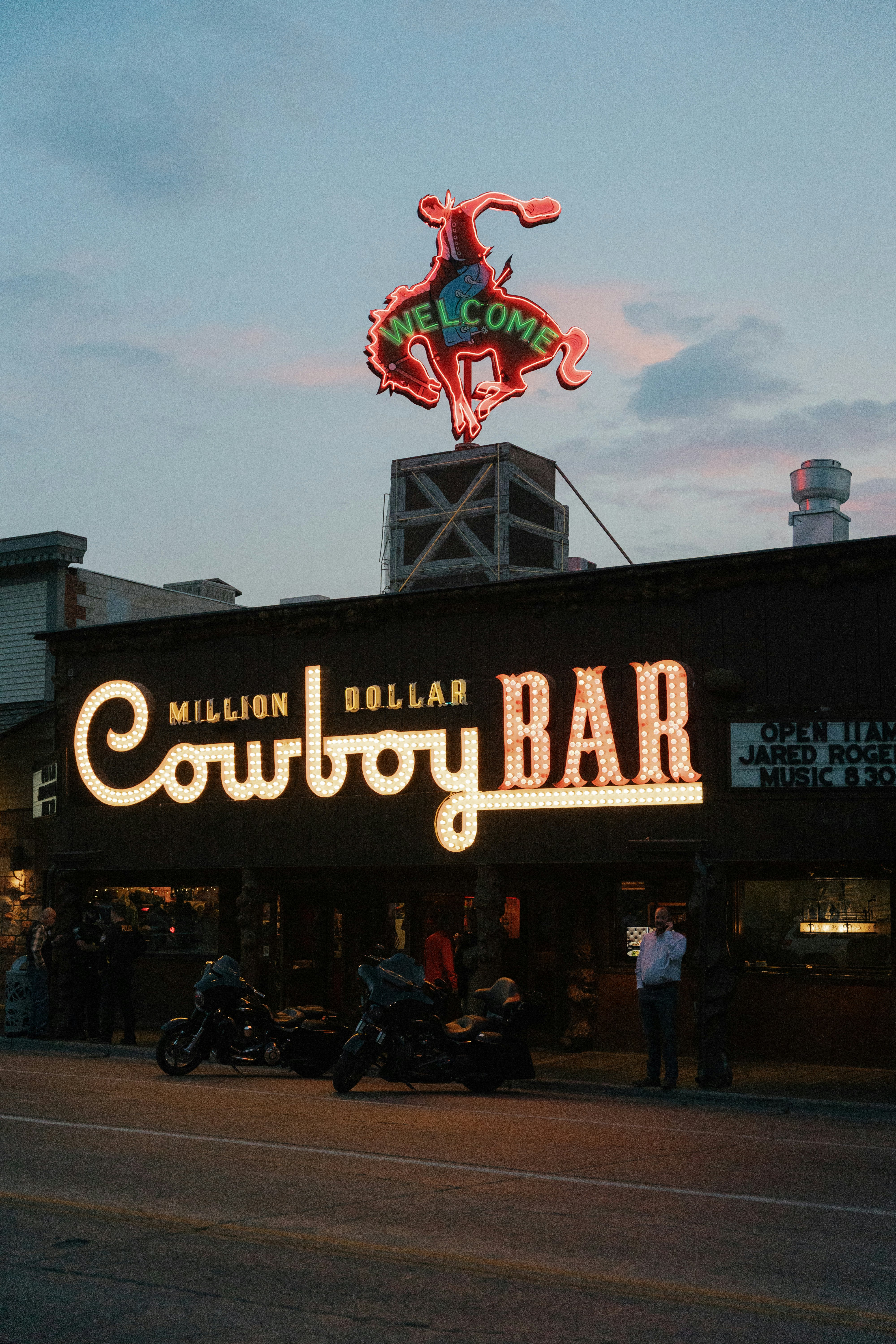
2. Jackson, Wyoming
Best for rustic luxury
Small-town but posh, Jackson, “The Last of the Old West,” blends luxury with deep-seated cowboy culture. Ride a stagecoach around Town Square, hit the long-running summer rodeo or dine on elk and bison steak in a former wildlife museum. With saddle barstools and nightly live music, the Million Dollar Cowboy Bar is a local icon.
Numerous dude ranches just outside town offer everything from rustic cabins to ultra-luxe all-inclusive retreats. I’ve stayed at – and highly recommend – Heart Six and Triangle X. To go all-in on frontier travel, head to Darwin Ranch, the most remote guest ranch in the Lower 48. Get the full cowboy treatment at Rusty Parrot Lodge & Spa, where the Cowboy Concierge sets up private trail rides or arranges for you to borrow a custom belt buckle.
Planning tip: Don’t overlook winter. Sleigh rides, skiing and snowboarding, ice skating and hot springs make for a quiet, magical visit.
3. Virginia City, Montana
Best for stepping into a time capsule
Virginia City looks and feels like a movie set, except everything is real. Montana Territory’s former gold rush capital remains strikingly well-preserved, from its wooden boardwalk paths to vintage saloons lining Wallace Street. Catch a cabaret show at Brewery Follies and, if you dare, spend the night at the allegedly haunted Fairweather Inn. Hop the Alder Gulch Shortline Railroad 1.5 miles to Nevada City, a ghost town turned living history museum.
Planning tip: Day-trip to nearby Dillon and Bannack. Dillon’s rural ranching culture meets top-tier fly fishing and a rare Patagonia outlet, while Bannack is one of the country’s best-preserved ghost towns.
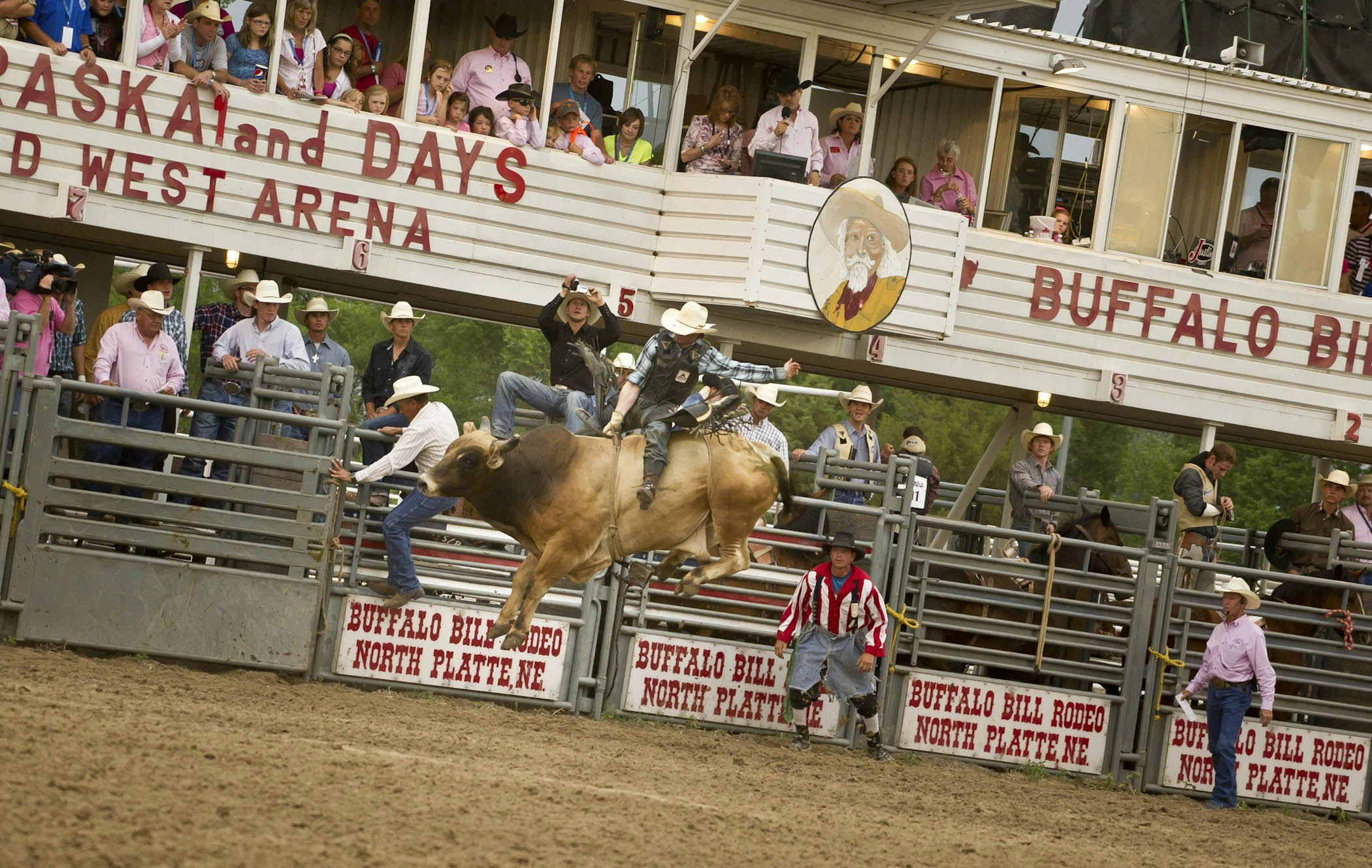
4. North Platte, Nebraska
Best for cowboys and cowgirls who brunch
“Buffalo Bill” Cody called North Platte home, and his original ranch (now a state park), complete with a barn and Second Empire-style mansion, hosts tours and trail rides. The town honors its heritage with the annual NEBRASKAland celebration, featuring concerts, parades and one of the country’s top PRCA (Pro Rodeo Cowboys Association) rodeos.
The Historic Canteen District downtown blends cattle country roots with stylish restaurants. Chic-industrial The Cedar Room serves prime Nebraska beef, while North 40 Chophouse has a polished ranch vibe and cocktails that would be at home in New York City.
Planning tip: Go in June to catch rodeo season, trail rides and “tanking,” a delightfully oddball, very Nebraska way of floating a river in a livestock tank.

5. Wickenburg, Arizona
Best for ropin’ and ridin’
Out Wickenburg way, west of Phoenix, the tall and proud Team Roping Capital of the World lives and breathes rodeo. Nearly 10 arenas host events year-round, and February’s Gold Rush Days bring high-stakes pro rodeo competitions, gold panning and carnival rides. Check out downtown’s Western murals, shops filled with turquoise jewelry and the Saguaro Theater, open since 1948 and still screening old Westerns.
Wickenburg is also Arizona’s dude ranch capital. Saddle up for trail rides and sleep in dreamy, century-old adobe buildings at Kay El Bar, but go in winter or spring – many ranches and horseback outfitters scale back operations in the summer.
Planning tip: Try a signature beef tallow cookie at Capital Patty (trust me) and check out the 200-year-old “Jail Tree,” allegedly once the town’s open-air lockup.


6. Ely, Nevada
Best for ghost town vibes
On the “Loneliest Road in America” (Highway 50), Ely is equal parts time capsule and cowboy playground. Explore Wild West murals downtown and step back in time at the Nevada Northern Railway Museum, where themed train excursions carry passengers through the high desert. Hunt for garnets, attend quirky events like a motorcycle rodeo and Nevada’s “Cowboy Kentucky Derby” or deliver mail on horseback in the Pony Express Re-Ride.
Planning tip: Ely is the best base for exploring one of the most remote, underrated national parks, Great Basin. Marvel at ancient bristlecone pines and experience one of the world’s best stargazing locations. On your drive to the park, stop at Ward Charcoal Ovens State Historic Park, where six perfectly preserved beehive-shaped charcoal ovens stand, used to process silver.
7. Buffalo, Wyoming
Best for Wild West authenticity, minus the kitsch
Between the Bighorn Mountains and the plains, teeny Buffalo packs serious cowboy cred. The Jim Gatchell Memorial Museum houses one of the West’s most robust collections of frontier artifacts, most of them gifted to the founder by Lakota people and soldiers. Nearby, the Occidental Hotel once hosted Butch Cassidy and The Kid, Teddy Roosevelt and Ernest Hemingway. Owen Wister wrote his 1902 cowboy novel The Virginian in the hotel, basing characters and the shootout on real events.
Buffalo also inspired the fictional Absaroka County from the hit 2010s Netflix series Longmire. Just beyond town, fourth-generation family-owned TA Guest Ranch sits on the site of the Johnson County War, and the legendary King’s Saddlery & Museum is a scenic 30-minute drive in Sheridan.
Planning tip: Visit the famous outlaw hideout Hole-in-the-Wall, 40 minutes south. The Hoofprints of the Past Museum in nearby Kaycee hosts in-depth guided tours every June.

8. Darby, Montana
Best for living out your ranch life dreams
TV’s Yellowstone put minuscule Darby (population: 860) on the map – for better or worse – but the cowboy culture that drew Hollywood here in the first place is no act. The Darby Rodeo kicks off summer each June with one of the world’s most intense bareback riding competitions, while Jimmy “the hat man” from Double H Custom Hats outfits both locals and the cast of the show.
Despite the glaring spotlight, this extraordinarily beautiful Bitterroot Valley town maintains its bucolic charm. Hike Trapper Creek, Lake Como and other quiet trails, peruse mom-and-pop shops like Mr. T’s Mercantile, imbibe with locals at 406 Saloon or explore the Darby Pioneer Memorial Museum, inside a hand-hewn log homestead. Get a taste of ranch life at Alta Ranch or the luxe Triple Creek Ranch.
Planning tip: Chief Joseph Ranch will accept limited cabin bookings in 2026. Yes, you can stay at the Dutton Ranch, but plan early – and expect to pay a premium.
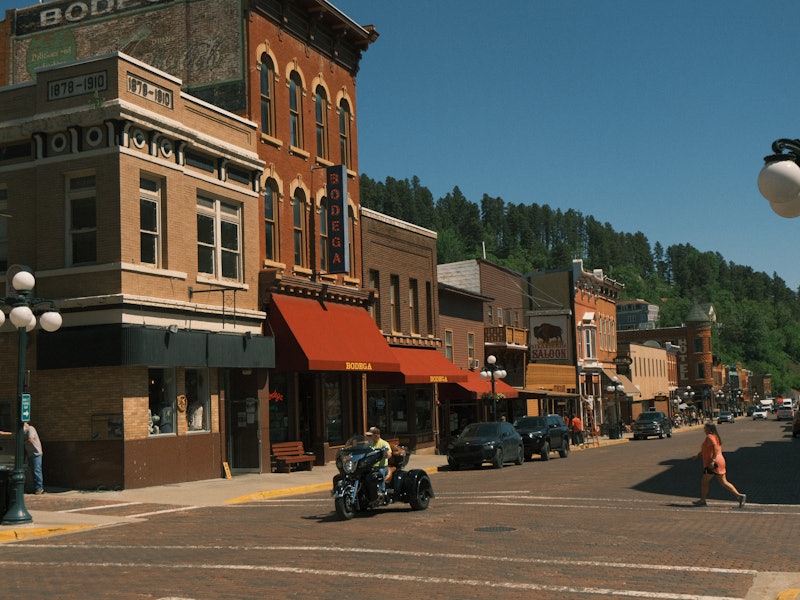
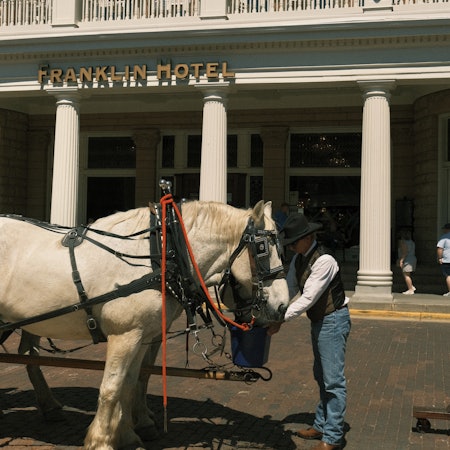
9. Deadwood, South Dakota
Best for outlaw lore and saloon brawls
In the fittingly rugged Black Hills, Deadwood wears its lawless legacy like a badge of honor. Downtown, one large National Historic Landmark, is packed with swinging-door saloons, rowdy 24/7 casinos and gunfight reenactments six days a week (“no killin’ on Sundays”). Belly up to the bar at Saloon No. 10, where Wild Bill Hickok was famously shot mid-poker game. His grave, alongside Calamity Jane’s, sits up the hill at Mt. Moriah Cemetery.
For a deeper dive into Deadwood’s raucous past, tour The Brothel, a former Main Street bordello (while technically illegal, Deadwood's brothel scene didn't officially end until 1980), or explore the Days of ’76 Museum, with a large collection of stagecoaches and horse-drawn wagons.
Planning tip: Avoid the Sturgis Motorcycle Rally in August unless you’re really into motorcycles. Hotels fill fast, prices spike, and the whole area shifts gears, leaning almost exclusively into biker events.
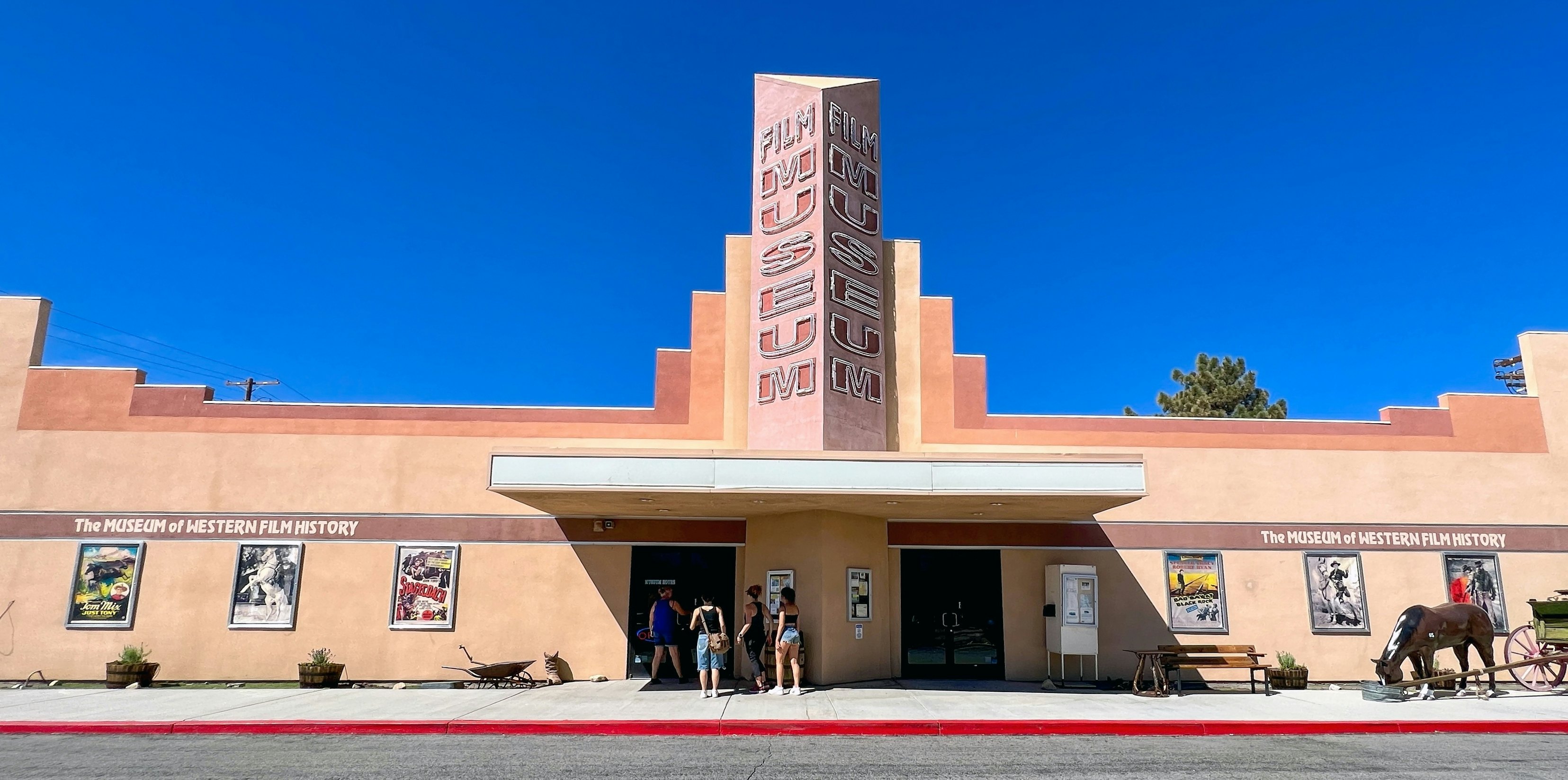
10. Lone Pine, California
Best for (Western) movie buffs
In the shadow of Mt. Whitney, the tallest mountain in the lower 48, tucked into the Alabama Hills’ otherworldly rock formations, Lone Pine feels like a classic Western film set – because it is. It’s served as the backdrop for 400-some movies and TV shows, many starring cowboy legends like John Wayne and Cary Grant. Trace their footsteps at the Museum of Western Film History (which also showcases props from non-Westerns, including Star Trek and Tremors) or on a self-guided driving tour along scenic Movie Road.
Lone Pine itself is endearingly unassuming, with an old-school hardware store packed floor to ceiling, Jake’s Saloon and the Dow Villa Motel, once a regular haunt for movie stars. It’s also a natural base for exploring the Eastern Sierra: Sequoia, Yosemite (in summer) and Death Valley (not in summer), all strung along Highway 395.
Planning tip: Make time to visit Manzanar National Historic Site, just nine miles north. This powerful, somber stop tells the story of over 10,000 Japanese Americans interned during World War II.
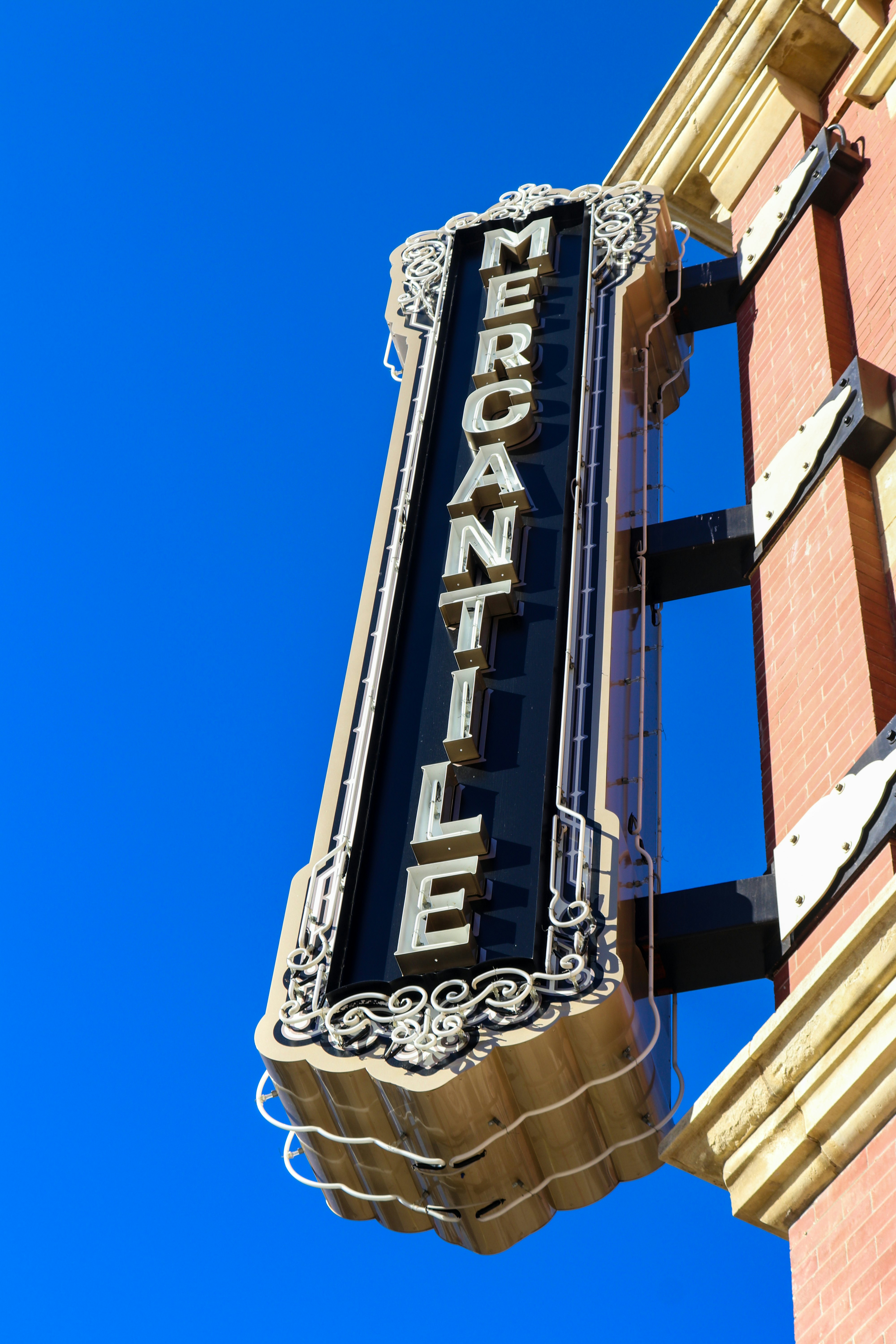
11. Pawhuska, Oklahoma
Best for a girls’ trip
Nestled in Osage County’s rolling hills one hour from Tulsa, Pawhuska blends Indigenous culture, cowboy heritage and a small-town revival anchored by The Pioneer Woman, AKA Ree Drummond. Her restaurants and mercantile turned the once-sleepy ranching town into a foodie destination.
While the Drummond name draws plenty of visitors, Pawhuska’s Western spirit runs (far) deeper. It’s home to the Osage Nation headquarters and the Osage Nation Museum, nearly 90 historic red-brick buildings downtown and the Ben Johnson Cowboy Museum, “home to the world’s greatest cowboys.” Beyond downtown, spot bison at the Joseph H. Williams Tallgrass Prairie Preserve, the largest protected stretch of tallgrass prairie on Earth, or explore wooded trails and “glamp” at Osage Hills State Park.
Planning tip: Time your visit to score a same-day tour of The Lodge on Drummond Ranch, where The Pioneer Woman films.
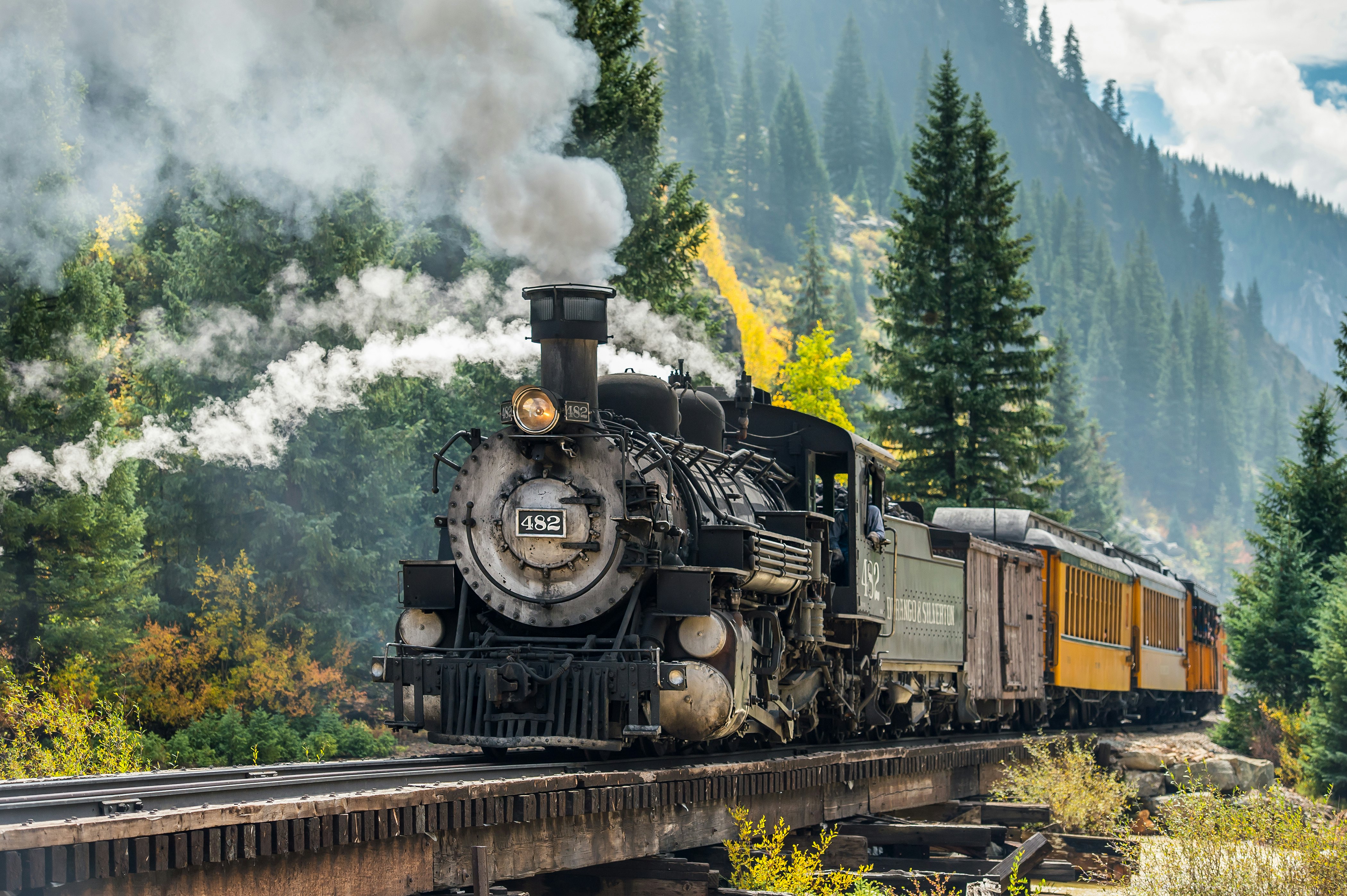
12. Silverton, Colorado
Best for history buffs with an adventurous streak
Tucked into the San Juans at 9300 ft, Silverton pairs jaw-dropping scenery with an outlaw past. The boomtown earned infamy for Notorious Blair Street, lined with brothels, gambling halls and 32 saloons. The present-day main drag, Greene Street, is home to candy-colored shops and a few remaining watering holes with tales to tell. The Durango & Silverton Narrow Gauge Railroad remains Silverton’s biggest draw, chugging along a canyon between the two towns on an 1880s-era steam train.
Silverton also has endless adventure at its doorstep. Surrounded by “fourteeners,” famously challenging alpine roads and the long-abandoned Animas Forks ghost town, it’s a haven for off-roaders and thrill-seekers. If you have nerves (and a stomach) of steel, drive the Million Dollar Highway, a stunning, slightly harrowing stretch of US 550 linking Silverton and Ouray.
Planning tip: Visit in early October for peak fall color and the Durango Cowboy Gathering, a lively weekend of cowboy poetry, Native American dances and a huge motorless parade.




